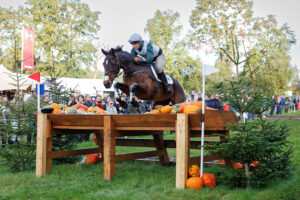Using Endocrine Therapy to Manage Subfertile Mares

Go Toward the Light!
Light has a considerable influence on some hormones. Increased light exposure results in a greater blood concentration of gonadotropin-releasing hormone (GnRH), which in turn increases follicle stimulating hormone (FSH) levels. The latter promotes ovarian follicle growth and maturity. Simply adding light in a mare’s stall for a few extra hours manipulates these hormones, said Lu. For mares that live outside, commercially available equine light masks can increase light perception and trigger hormonal changes.
Begin increasing your mare’s light exposure about 50-60 days prior to the onset of the breeding season. Lu said a simple way to determine if your light levels are effective is by seeing if you can read a newspaper with the ambient light it produces. If not, add more light.
Hormones to Help
Breeders can artificially stimulate the ovaries using hormone therapy. Veterinarians have administered a naturally occurring hormone called human chorionic gonadotropin (hCG) and the synthetic deslorelin acetate (DA) reliably to induce ovulation and optimize breeding potential.
The hormone prolactin plays a role in mares’ normal estrous cycles. If prolactin is out of balance, it could interfere with normal cycling and pregnancy, said Lu. In such cases, interventional hormone therapy might be warranted.
After breeding, mares experience a slight natural buildup of uterine fluid in response to foreign material (e.g., semen) in the uterus; this typically clears within one to two days. Some mares experience delayed fluid clearance and inflammation of the endometrium that lines the uterus, resulting in a poor environment for a fertilized egg to thrive and loss of pregnancy. Oxytocin is a hormone that, among other functions, induces uterine contractions to help clear this fluid. When stimulated by oxytocin, the uterus produces prostaglandin F2-alpha, which also plays an important role in uterine clearance, contractility, and mediation of inflammation.
Outside Influences
Stress, inflammation, obesity, and insulin resistance can all negatively impact the endocrine system’s effect on reproduction. Manage these conditions properly to help improve your mare’s chances of achieving a successful pregnancy.
Take-Home Message
In the case of the subfertile mare, it is important to consider the entire horse. Reproductive endocrinology is very complex and influenced by overall health and well-being. Therefore, said Lu, it is essentially to support these mares throughout the entire reproductive process with a well-thought-out and properly applied treatment plan.

Related Articles
Stay on top of the most recent Horse Health news with


















